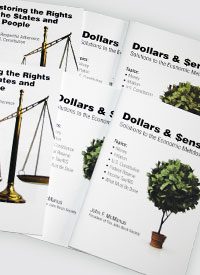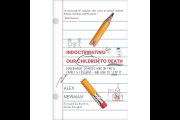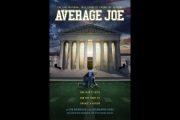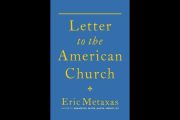
Thomas Jefferson once said of the newspapers of his day that people would be better informed and less deceived if they read no newspaper at all. That observation, by and large, still holds.
That’s why two new booklets by John McManus, Restoring the Rights of the States and the People and Dollars & $ense: Solutions to the Economic Meltdown, are so useful. They lay out in direct, accessible language the common-sense arguments that our betters prefer to obscure or ignore.
A Stately Affair
First, the states. These days we hear a great deal about various Tenth Amendment and state-sovereignty resolutions proposed and passed by various state legislatures. Naturally, the press demonizes people who support them — why, these rubes don’t trust the Harvard Ph.D.’s who rule over them for their own good!
From the period of the early republic until the misnamed Civil War, the states repeatedly defied the federal government on issues ranging from war, conscription, and trade, to free speech and fugitive-slave laws. Students are not generally taught this history in school. They learn instead that the only reasons anyone might not want to repose all decision-making power in the hands of our wise overlords in the federal government is an incorrigible desire to oppress minority groups in one way or another. (Good thing most college students don’t read what their professors assign them, or we’d be in real trouble.)
Although not his primary purpose, McManus deftly lays out the case in Restoring the Rights that those Americans who favor these resolutions — and, we hope, the follow-up actions by the states involved — are demonstrably in the right from a constitutional and historical (not to mention moral and political) point of view.
McManus also provides an important service in taking apart John Marshall, chief justice of the United States from 1801 through 1835. I have never understood the soft spot that some conservatives and constitutionalists have for Marshall. It is not a compliment to observe that Marshall was an innovator, since a chief justice is supposed to preserve and interpret the law as written, not impose his own gloss on it. The Jeffersonians consistently opposed Marshall’s innovations, whose combined effect was to strengthen the federal government against the states on the basis of dubious arguments that are today presented to law students as masterpieces of jurisprudence. The various Jeffersonian replies to Marshall are, naturally, ignored entirely.
It was Marshall, for instance, who placed an expansive interpretation on the “necessary and proper” clause of Article I, Section 8, which social-studies teachers have erroneously referred to as a catch-all “elastic clause” ever since. The clause pointed out that the federal government was being delegated those subsidiary powers without which the enumerated powers could not be put into effect. Thus the power to erect “other needful buildings” presumably included the power to purchase lumber for this purpose.
Marshall, on the other hand, gave “necessary” such a broad construction that it may as well have read “convenient.” Since just about anything seems convenient to the federal government, the expansion of government power under this interpretation is not exactly the most surprising development in the history of mankind.
I would add to McManus’ excellent analysis the amplifying point that early exegesis of the clause held that it had been meant only as a clarification, and was not a grant of additional powers to the federal government. In other words, it was not intended to be an “elastic” clause. Even Alexander Hamilton held this view: the Constitution and its meaning, he said in The Federalist, would be exactly the same had there been no “necessary and proper” clause.
Likewise for the “general welfare” clause: the idea that additional federal powers could be carelessly justified with reference to these words is incompatible with virtually all early constructions of the phrase. At the Virginia ratifying convention, skeptics of the Constitution like Patrick Henry were assured that the federal government would possess only those powers “expressly delegated” to it, and that no interpretation of clauses like this one could change that.
McManus has long been impatient with gripes about our present situation that lack any proposals for reversing it. At the end of Restoring, he offers 10 such suggestions. All of them are worth trying, although we may have reached a point at which more radical (though still peaceful) approaches have become necessary.
Dealing With Dollars
The economic crisis of the present day has brought forth its own clichés and prop-aganda. They boil down to this: if we do not hand over more money and power to our wise planners and stabilizers, our economy will never fully recover. Reading the Washington Post’s pleas for the various bailouts and its demonization of all opposition gave us a glimpse of what it must have been like for a 20th-century Russian to read Pravda.
McManus’ Dollars & $ense eviscerates this comic-book version of events. Among other things, he raises the Forbidden Subject — the Federal Reserve System — and proposes that our monetary central planners may have had a teensy weensy bit to do with the disaster we face now.
If there’s one thing the New York Times and MSNBC are even less happy to see the public discussing than the Federal Reserve, it’s the broader subject of money itself. We are supposed to believe that only a laissez-faire stooge could favor a commodity-based money (backed up by gold or some other precious item) over the fiat paper system (not backed by a commodity) we have now. When not being laughed at or ridiculed, the idea of basing our monetary system on a commodity whose supply the government cannot multiply at will is considered so contemptible as not to be worthy of reply or even acknowledgment.
McManus, naturally, doesn’t give a hoot what the Times or MSNBC wants to hear, and proceeds to explain, in layman’s terms, some of the advantages of a sound-money system over the irredeemable paper we now use. The very reason that the regime and its media shills despise and fear sound money is the reason a free people should support it: it limits the government’s ambitions by restricting the share of resources it can siphon from the productive economy. Without a magical money-creation machine, government must resort to borrowing and taxation, both of which occur in the open and both of which come up against natural limits. (Since World War II, for instance, federal tax receipts have consistently hovered around 20 percent of GDP regardless of the tax rates in force.)
That is not the only advantage of sound money, to be sure, and McManus discusses others, but it is almost certainly the most important.
Most Americans, including even some of those who more or less grasp the big picture of what’s going on, are bewildered by the Federal Reserve System, fiat money, gold, and other such issues, which they falsely believe to be inscrutable except to specialists. McManus explains them all. He is not supposed to do this. Americans are expected to entrust their monetary system to those people we laughingly call the experts.
I think a rudimentary description of the Austrian theory of the business cycle, which blames central banks’ manipulation of interest rates for the economy’s boom-bust cycle — and which has aroused more public curiosity than ever thanks to the current downturn — would have rounded out the story McManus is telling. Still, if Americans can be led to understand what our author is saying, we will have taken a gigantic step toward restoring a sound economy.
You could spend the next 10 years listening to the propagandists and empty suits on cable news programs and not learn a sliver of what these two booklets can teach you in an afternoon. They are worthy introductions to a lifetime of learning.
Restoring the Rights of the States and the People, by John F. McManus, Appleton, Wisconsin: The John Birch Society, 2009, 38 pages, paperback.
Dollars & $ense, by John F. McManus, Appleton, Wisconsin: The John Birch Society, 2009, 38 pages, paperback.
Thomas E. Woods, Jr. is the author of nine books, most recently the New York Times bestseller Meltdown: A Free-Market Look at Why the Stock Market Collapsed, the Economy Tanked, and Government Bailouts Will Make Things Worse.



